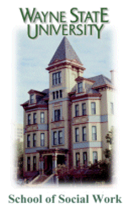
Image: socialwork.wayne.edu
The president of Health Mate, Inc., Sandra Schiff offers coaching and development in relation to businesses. Sandra Schiff is also a part-time professor at Wayne State University’s School of Social Work.
Recently Wayne State University made the news for its commitment to working with President Obama towards defeating the epidemic of controlled substance abuse. The University signed a pledge to improve its curriculum regarding addiction and prescribing practices and will implement new guidelines that educate health care professionals in targeted techniques for fighting this epidemic.
In this effort, the School of Social Work collaborates with other departments including the School of Medicine and the College of Nursing by taking steps to educate them on issues that might be overwhelming to healthcare professionals. These include showing professionals when to accept their limitations and ask for help in difficult cases, and explaining how to best implement state prescription drug monitoring programs. It also seeks to allow providers, including new ones, to see how their own biases may limit or affect their abilities to help clients.